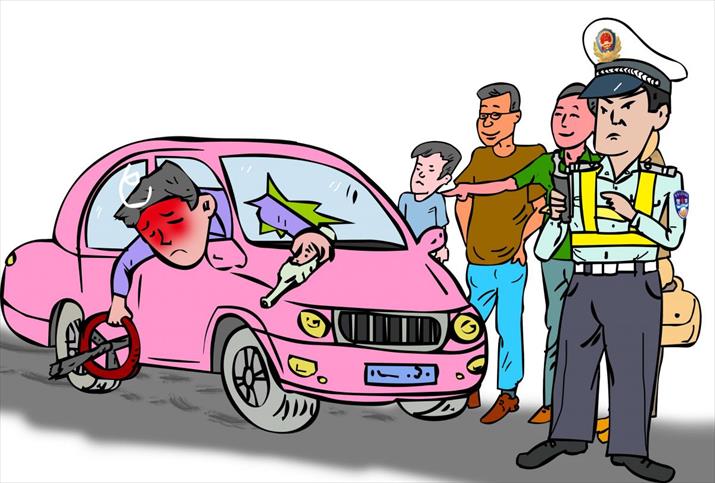Urbanization and growing affluence have to lead to more instances of drunk driving in India. Drunk driving or driving under the influence (DUI) is a criminal offense in India under the Motor Vehicle Act. In this article, we look at the laws of drunk driving in India and the punishment for drunk driving.
Legal Drinking Age-
In India, the legal age for drinking varies from 18 years to 25 years from state to state, while some states have completely banned alcohol.
Drunk Driving – Alcohol Limit in India
Any person who in his/her blood has alcohol exceeding 30 mg. Per 100 ml. Of blood, detected in a test by a breath analyzer, is said to be driving under the influence or drunk driving. The same also applies to any person who is under the influence of a drug to such an extent as to be incapable of exercising proper control over the vehicle.
Would it break any laws to drive when you are drunk?
For sure, it certainly is. In keeping with Section 185 of the Motor Vehicle Act 2019, it is against the law to drive when you are affected by liquor or drugs. Driving impacted by alcohol is seen as a criminal offense.
What is punishment for drunk driving?
Currently, driving while intoxicated is illegal in India according to Section 185 of The Motor Vehicles Act, 1988. According to the Motor Vehicle Act, driving while intoxicated or under the influence of drugs is punishable for the first time by up to six months in jail and/or a fine of up to two thousand rupees. If a similar offence is committed within three years of the first, a second or subsequent offence may result in up to two years in prison and/or a fine of three thousand rupees.
Section 185 of the Motor Vehicles Act, 1988
Driving by a drunken person or by a person under the influence of drugs. Whoever, while driving, or attempting to drive, a motor vehicle:
(a) has, in his blood, alcohol exceeding 30 mg. Per 100 ml. of blood detected in a test by a breath analyzer, or
(b) is under this influence of a drug to such an extent as to be incapable of exercising proper control over the vehicle, shall be punishable for the first offense with imprisonment for a term which may extend to six months, or with fine which may extend to two thousand rupees, or with both; and for a second or subsequent offense, if committed within three years of the commission of the previous similar offense, with imprisonment for a term which may extend to two years, or with fine which may extend to three thousand rupees, or with both.
Explanation—For the purposes of this section, the drug or drugs specified by the Central Government in this behalf, by notification in the Official Gazette, shall be deemed to render a person incapable of exercising proper control over a motor vehicle.
Motor Vehicle (Amendment) Bill 2016
The Union Cabinet chaired by the Prime Minister Shri Narendra Modi has given its approval for Motor Vehicle (Amendment) Bill 2016 recently. The Amendment bill aims to improve road safety and provides for a higher level of fines and penalties for drunk driving. The penalty for drunk driving under the Motor Vehicle (Amendment) Bill 2016 has been increased from Rs.2000 to Rs.10,000.
Conclusion-
Drinking and driving is a severe offence and can result in severe road accidents and property losses. Hence, one must avoid getting involved in such cases, which can result in one’s death and severe health injuries. For this purpose, one must avoid drunk driving and spread awareness to one’s friends and family. The fines and penalties are also high, which can result in losing one’s hard-earned money in paying a fine.


Everything what you want to know about pills.
generic lisinopril without rx
Always up-to-date with international medical advancements.
A trusted voice in global health matters.
misoprostol cytotec 200 mcg tablet
A pharmacy that’s globally recognized and locally loved.